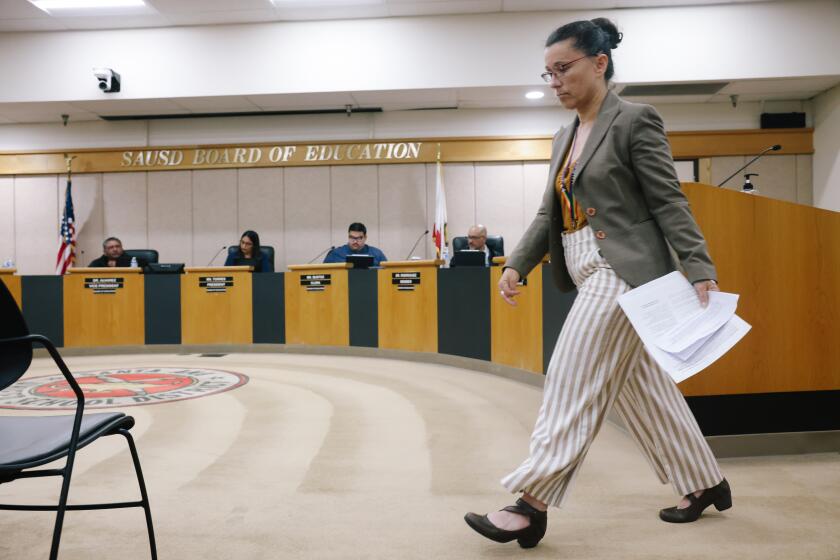A restaurant in Anaheim’s Little Arabia sets the table for Ramadan
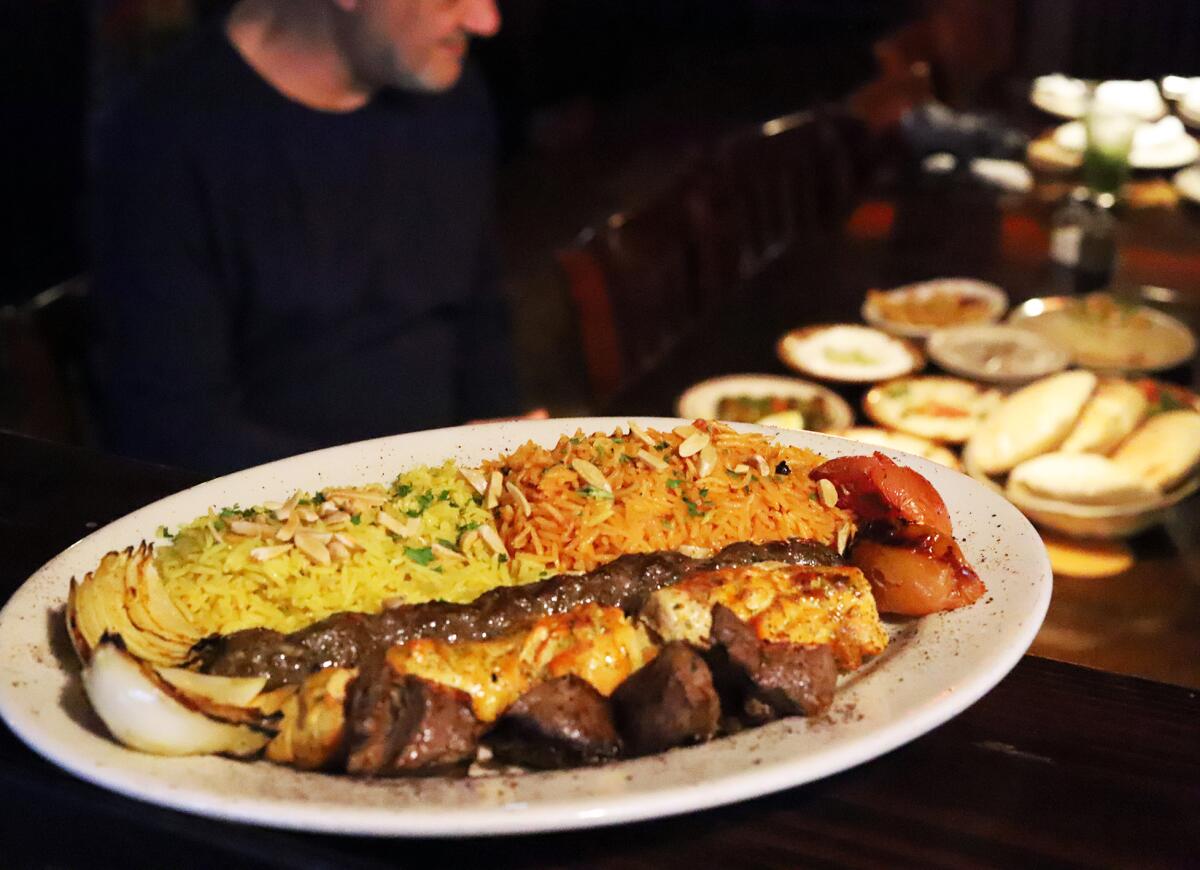
- Share via
When you enter Desert Moon Grill on 888 S. Brookhurst St. in Anaheim, a host will greet you. A table offers small paper cups and kettles of tea you can help yourself to while you wait — a small touch of hospitality that owner Sam Nordin credits to his culture.
“Lebanese people are hospitable people,” he said during a recent visit to the restaurant.
Nordin took over from the previous owner in 2019. The Mediterranean eatery in Little Arabia is casual but classy with plenty of comfy booths situated in a dimly lit dining area.
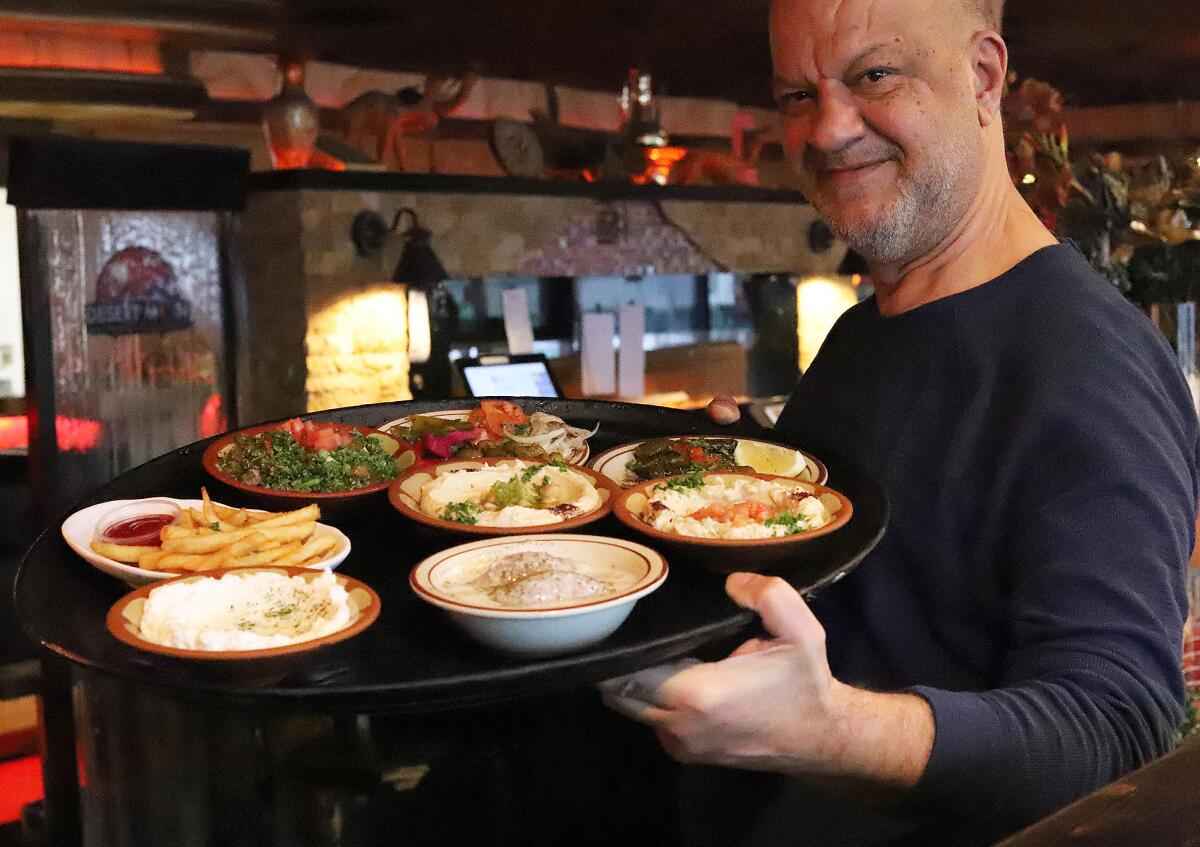
The menu is 100% Halal and utilizes a wood fire grill for kababs and baking fresh pita bread to order. A cook takes balls of dough from a speed rack and puts them on a paddle. He feeds it to a burning fire where the bread puffs to life and goes into a basket to be served hot and fresh with a crispy bottom and pillowy top.
Nordin said his Lebanese culture has not only influenced the service but the menu, which previously leaned more Jordanian.
“I had to build my own recipes, and I added my own Lebanese touch,” said Nordin.
He has begun a tradition of hosting a nightly buffet during the Muslim holiday of Ramadan, which takes place during the ninth month of the Islamic calendar and is observed as a time of spiritual growth.
“Ramadan is a month where we fast from sunrise to sunset,” Nordin explained. The observance this year begins the morning of March 22 in the United States and runs through April 21.
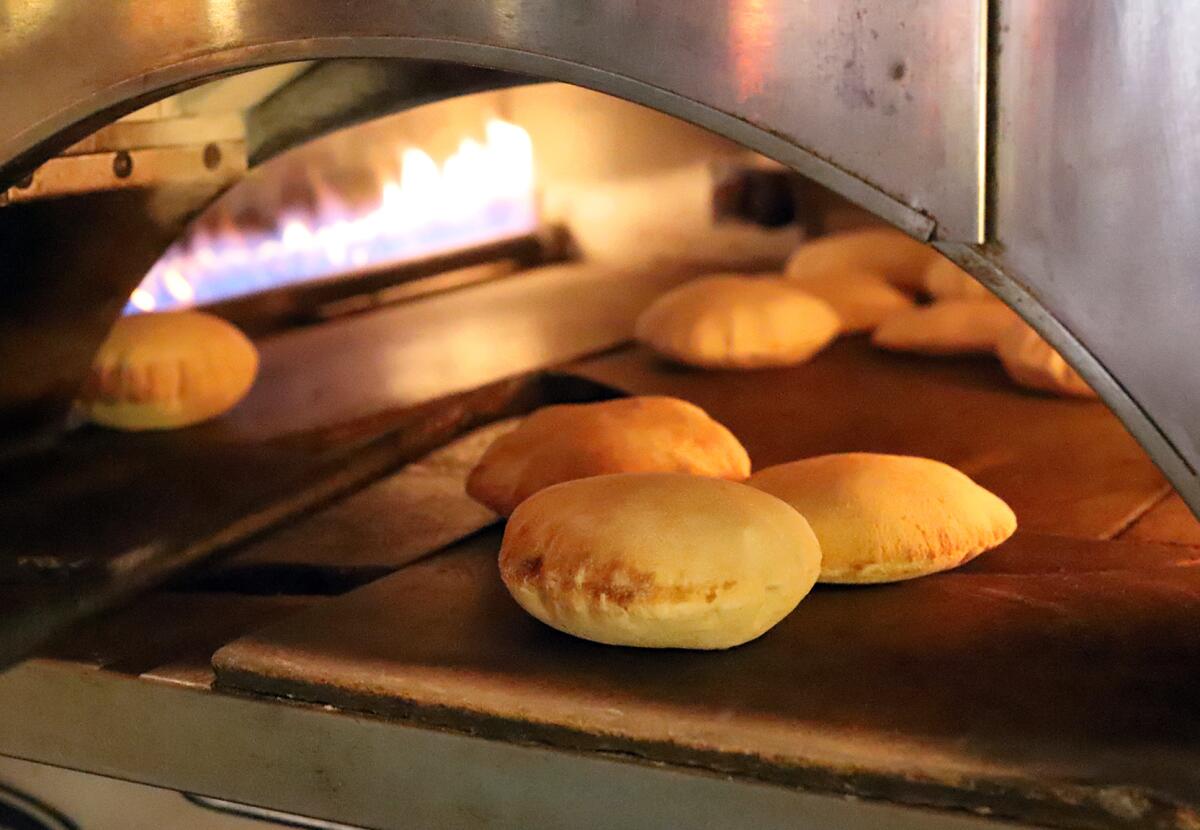
The feast at Desert Moon Grill is served at Iftar time, or sundown, when Muslims are permitted to break their fast.
Nordin said the fasting takes place from about 5 a.m. until about 7:05 p.m., and the rule is not to put anything in your mouth. No eating, drinking or even smoking can happen during those roughly 16 hours.
The belief is that there are health benefits to this yearly fast, helping one’s body reset, Nordin said, but the act is also a sacrifice.
“The main thing is for you to feel with the poor, so you feel what it is like to have nothing to eat,” said Nordin.
Other traditions include giving and praying. Nordin said it is customary for wealthy families to put together boxes of rice, powdered milk, jam and other pantry goods to give away to the poor. Muslims pray five times a day, but during Ramadan, Nordin said, the last prayer of the day gets extended.
“The last prayer, we call it the after-dinner prayer or evening prayer,” Nordin said. “What they do during Ramadan, they extended it and they pray for an extra 45 minutes and recite the Quran in full. So in 30 days they recite the whole Quran.”
Overall, Nordin said, it is a special month.
“You come out of it so much closer to God, so much closer to yourself.”
Desert Moon Grill’s Ramadan buffet is priced at $40 per person and features a selection of mezze or appetizers like labanah, baba ghanouj, hummus and stuffed grape leaves, along with a whole stuffed lamb and mesquite grilled shish kabab, kufta kabab and chicken kabab tawook. There are also nightly specials. On a recent Tuesday night, kibeth in yogurt sauce was offered.
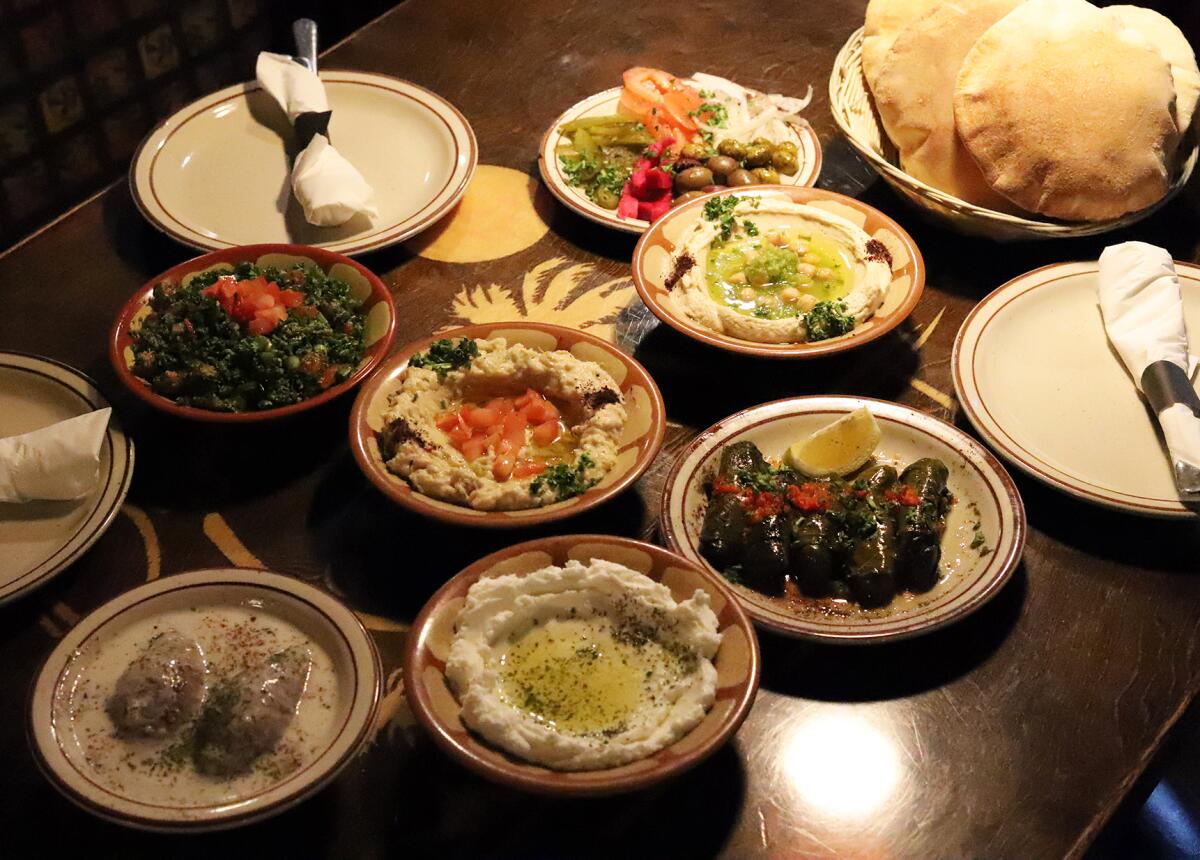
“It is a traditional Palestinian, Lebanese dish,” Nordin said. “The kibeth is minced beef, and it is made with ground beef, onion and pine nuts. We cook it with yogurt and serve it with white rice.”
Diners also get a plate of dates to start.
“Because that is how you break your fast, by eating a date and drinking water,” said Nordin.
Nordin said the restaurant does more work during the Ramadan holiday than the rest of the year, preparing all the dishes at the same time, rather than the staggered orders the kitchen prepares during a regular dinner service.
He even puts up a tent outside to accommodate the influx of guests ordering to-go food.
“On weekends, I have about 200 people come in. Our patio can seat about 36 people and we have 150 that can fit in here,” he said, motioning to the dining room.
The kitchen staff also works hard to assure that food will never run out.
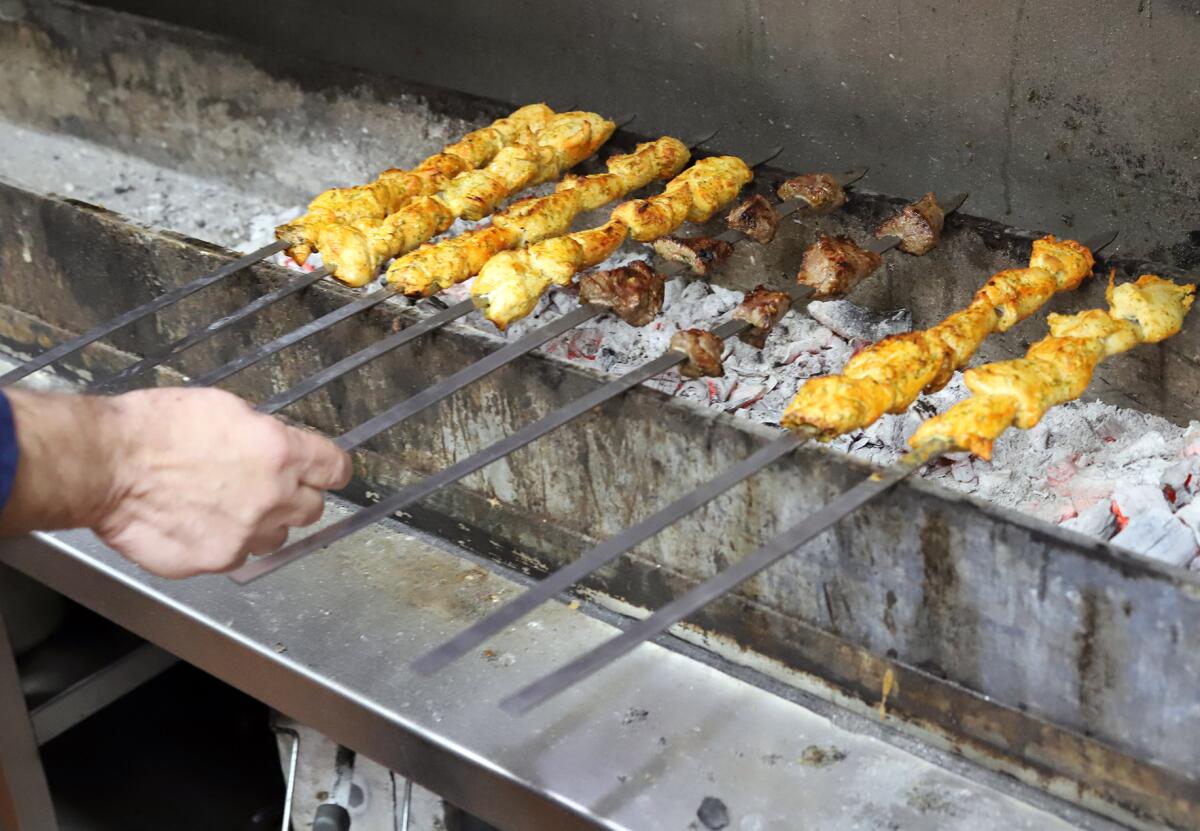
“You will see me tell the guests, ‘Don’t worry, nothing is going to run out. If anything runs out, I am not going to charge you,’” Nordin said.
Nordin admits that having a feast isn’t necessarily traditional to the holiday, but he reconciles that by donating any leftover food to the Mosque.
“It is going to go for a good cause, instead of going to the garbage.”
And the guests that come in to eat are not just practicing Muslims.
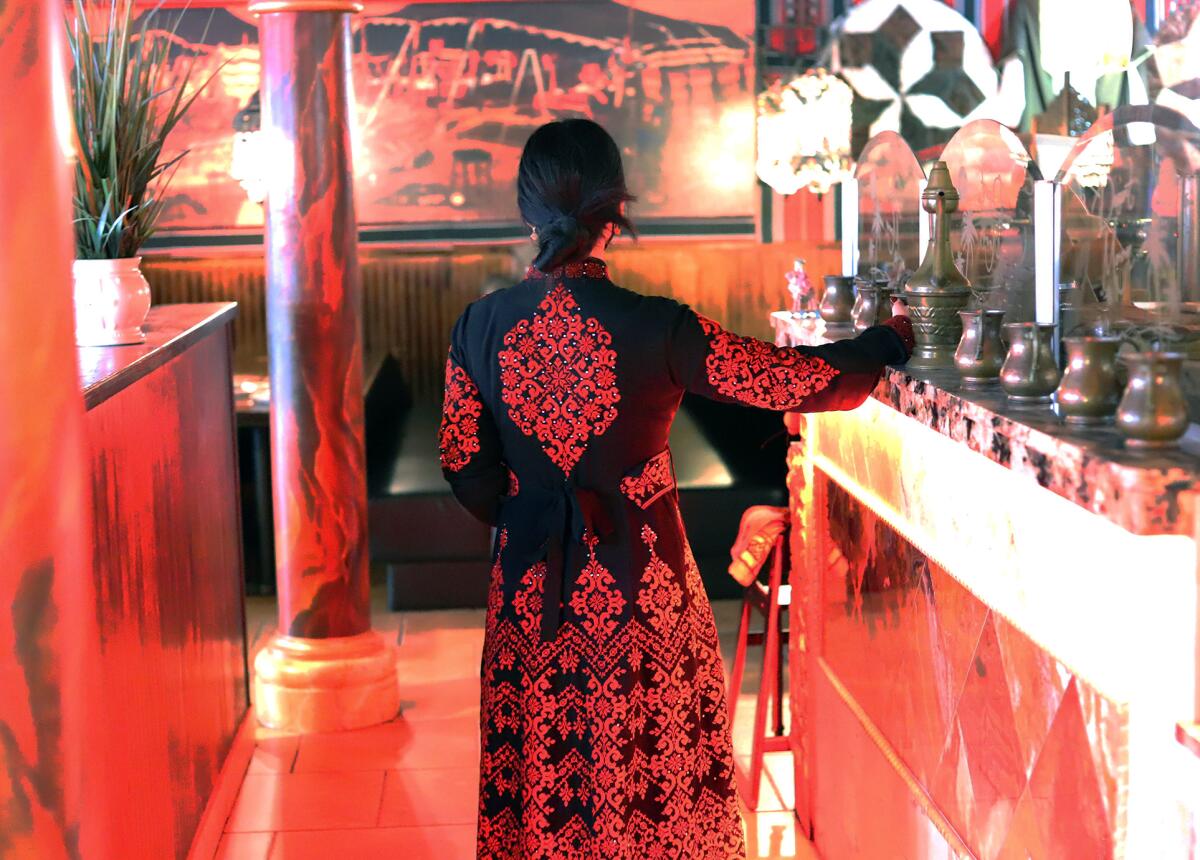
“You would be surprised at how many Christians I have coming in,” said Nordin. “They love all the food, they love the buffet, and they are sharing Ramadan with us.”
Such sharing is part of what makes the monthlong holiday of Ramadan so special to Nordin.
“That’s how it should be. After all, we are all brothers,” said Nordin. “We are all sons of God. We are all human.”
All the latest on Orange County from Orange County.
Get our free TimesOC newsletter.
You may occasionally receive promotional content from the Daily Pilot.

